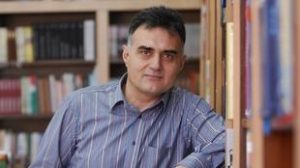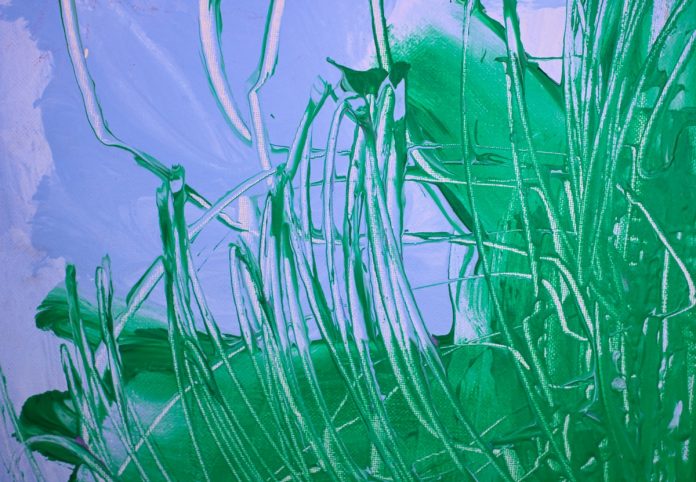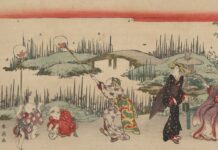Translated from Macedonian by Elizabeta Bakovska
Now there are many people that write about what happened in our time, but only the two of us have remembered equally long, because we were born on the same day and in the same town. I left with the First Cohort of Archers and you remained there. I think that you already know who I am, but I too know who you are, and I know what you are, and I know that you have been writing the story about him collecting the testimonies in a book that could be the book of books. That is why, brother Teophilos, I am sending this story of mine, so that you know that not everything is the way it has been written by those who never witnessed what had happened before his star ascended. And everything happened in this and in no other way, brother Teophilos. I am already a man of age; if my counting serves me well, I am almost eighty, and I still remember quite well what happened under the cloud that bore the face of a dove. She was sixteen, and I was six years older. I closed the door behind me, I pushed it and I was quiet, waiting for my eyes to accustom to the shadows. I came closer to her and I slowly lifted the cover. Then she turned her eyes, and she started to pull her shirt, and, just as she pulled it up to her belly button, my body penetrated her and my holy semen was spilled in her noble womb. As you know, brother Teophilos, there are things that God does not understand, although he himself has created them. I know that I rested on her no longer than a minute, maybe less, as the one from Azinaga writes, and then she pulled her shirt down, she pulled her cover up and she covered her face with her other hand. It was not before dawn that I realised that I was the first man in her life. I want to say, I am the father, brother Teophilos, although some beggars wander around saying that I did not exist, that my son was born without a father. Is there a man in this world who was conceived by the wind, by nothing, brother Teophilos? Every human being has both a mother and a father, and my son is no exception, for he is human. Still, I would not have written this, brother Teophilos, if I had not understood that those who wander around the villages with their canes started to talk that my son had been so ruthless and in his dying hour he even denounced his mother, rudely calling her “woman” rather than “mother”. This was the drop that spilt the glass, brother Teophilos. It is true that when they crucified him, when they divided his clothes among them drawing a lot, she stood under the cross with a disciple. How can I believe that our son, my son, brother Teophilos, really called his mother, the one who had cried kneeling by the cross, “woman” rather than “mother”? And even more, he said that the disciple who stood next to her was her son, utterly humiliating her in front of the people. If he had been so insulted that everybody around her knew about me and did not want it to be known, why did he have to humiliate her so much as he was dying? Of course, he did not do that; no son would call his mother “woman” with such a voice and such malice, unworthy even of the lower provincial whore. It is just a ruthless lie of those who trade with his death, brother Teophilos!
That is why I have decided to send you this story of mine, so that you know what really happened rather than what is invented by those who cheat using the name of my son for their false testimonies. They are by all means much better off like this; they invent, and live on it, rather than fishing, planting, keeping sheep or collecting taxes for the empire. According to what I have read, but also according to what the soldiers from the other cohorts coming here tell me, I think that it is good that at least they admit that she had been pregnant before they married her to that poor old man, who knew that she was pregnant because not only that he had not been with her, but he saw her for the first time when she was brought to his house. I know that he wanted to leave her quietly, not to embarrass her, I know that he wanted to help her leave the place and give birth in secret, in some cave, maybe, but she had left to her relatives seven kilometres further from the house of her fiancé, and she stayed there for seven months. As I understood from afar, because I was in Lychnidos, the town of Cadmus, at that time, the old man was still a very noble man, and the marriage between him and my only one, my unforgettable love, was officialised only after the child had been born. To this day, I do not know how they later invented the story that I never existed, and how they convinced him that I had never existed.
I am a soldier, I have a heart of stone, my heart beats for revenge, it beats to hate, brother Teophilos, but I still admit that I have shed two tears for him. Once when I heard that he had entered the temple when he was twelve and everybody who listened to him were amazed by his wise responses, and, for the second time, when they went to a wedding with his mother and he turned the water into wine when the wine was finished. Now you might say why didn’t you stay, why didn’t you marry her, but you know Augustus, and you know Tiberius until the fifteenth year of his reign. We slept hugging our spears in the castrum by the road; it was forbidden to leave; I could see her only when I was patrolling. I want you to know that there used to be nothing between us for days. We sat in silence under the deadly shadow hunting the moon with our wet foreheads so that we could look at each other. It was three months later that what happened did happen, I have already admitted it. Celsus was the only one who wrote in his tractate “On the Real Doctrine”, the one that was handed around the cohort in rolls before being exchanged for wine, that she “was with a child from a Roman soldier”. Obviously he too did not know that I was the soldier, or my name might have been in another roll, because the ones that I saw were but a few and there must have been others. Besides, one of those, brother Teophilos, those that have invented the story without me, now writes about a secret, mysterious travel of my son to our city, he writes that he entered a house, not wanting anybody to know about that. Do you know why he did not want anybody to know about that? Because that is my parents’ house, brother Teophilos, our two-storey house. If the time that can only be determined by the reign of the emperor is correct, my mother Shua was still alive. But it is not the only thing, brother Teophilos. Three weeks later, the people from my cohort who had been sent to deliver a message, brought a letter written in her handwriting. The letter came to the camp thirty three kilometres north of Bad Kreuznach, where the river of Nahe flows into the Rajna. She wrote that he had asked about me, that he wanted to see me, but that it was too late for it to happen in public. I realised that he wanted to see me in secret, but, alas, we never found the time for this, brother Teophilos, because when I decided to go there, you know, the temple, the rebels, had already happened. Still, brother Teophilos, I finally realised that my son had always known that he was my con, and only she could have told him that, my only, my unforgettable love, my virgin who still pulls her shirt down and still pulls her cover up to hide her face from the cloud that looks like a dove.
What more can I say, brother Teophilos? Now, when he is dead as all dead men are, and I might still be alive although I am almost eighty, I want it to be known that I too have crucified many people on the same hill where my son died, and I know how it must have been for him watching the valley of roses. The death by crucifixion is a slow process; it can last for couple of days. The victims are naked, and the sun shines like hell. I know that my son was nailed on the cross on Thursday, not on Friday, at nine o’clock in the morning. Before sticking a spear in his stomach, and I know what it means for I have done it to many people, he must have thought of me, but I was too far to rescue him. Then, brother Teophilos, maybe then, realising that it was too late, he scolded his mother calling her “woman”, and both then, and now, it could only be said to the slaves and the lowest of prostitutes. Everybody else has a name, brother Teophilos. Even the cows have names. Why did my son do this? Was it because he could not forgive her, even as he was dying, that she had agreed to keep silent and proclaim me a man who never existed? Or maybe he never forgave her for being with a Roman soldier, although I am a Jew? I don’t know, brother Teophilos. I only know that maybe that was the reason that he was pierced with the longest spear. I have also pierced several men who spoke before they died. Still, if I had been there, and if that was so, I don’t know, I might have given him the strength not to denounce his mother once he had to denounce his father, because she had deserved that living all of her life being mocked as an adulteress because of him. I know that my son died at about three o’clock in the afternoon, on the same day when he was crucified. And that was it. I want to say, I do not need anybody who resurrected to exist, but I need my son, the one I knew existed, and the one that will exist as long as I exist and my tomb exists. Of course, I forgive him, for he was forced to accept the story without me, not knowing that it would leave him no space to be a man, to live like a man and to die like one. And death should not be praised, because death looks like everything, but it resembles nothing.
Now, brother Teophilos, as they carve my tomb in gray marble, I still think whether to write: Here rests Tiberius Iulius Abdes Pantera, the soldier who bravely served the First Cohort of Archers for forty years, or just: Pantera, a Roman solider and a father of… Yes, you know whose, brother Teophilos, everybody writes to you, even the ones that have never spoken my name. And you know how hard it is to live as if you don’t exist, and you do, only that you can not prove that you have existed, for there is no proof that you have. Apart from the tomb that might once be discovered north of Bad Kreuznach, at the spot where the river of Nahe flows into the Rajna. Except that it is not finished yet.
About the author:

Blaze Minevski (1961, Macedonia) is the author of the novels “Me, Lenin and Mickey Mouse”, “We Should Have Taken a Photo before We Started Hating Each Other”, ”A Story about a Third Party, “The Mark” and ”The Performers”. ”The Mark” won the award “Stale Popov” (2007) for the best book of prose, given by the Macedonian Writers’ Society, the award “Novel of the year” given by the newspaper ‟Utrinski Vesnik” and the award ”13th of November” given by the City of Skopje. He also has to his credit numerous short stories that have won wide acclaim.















